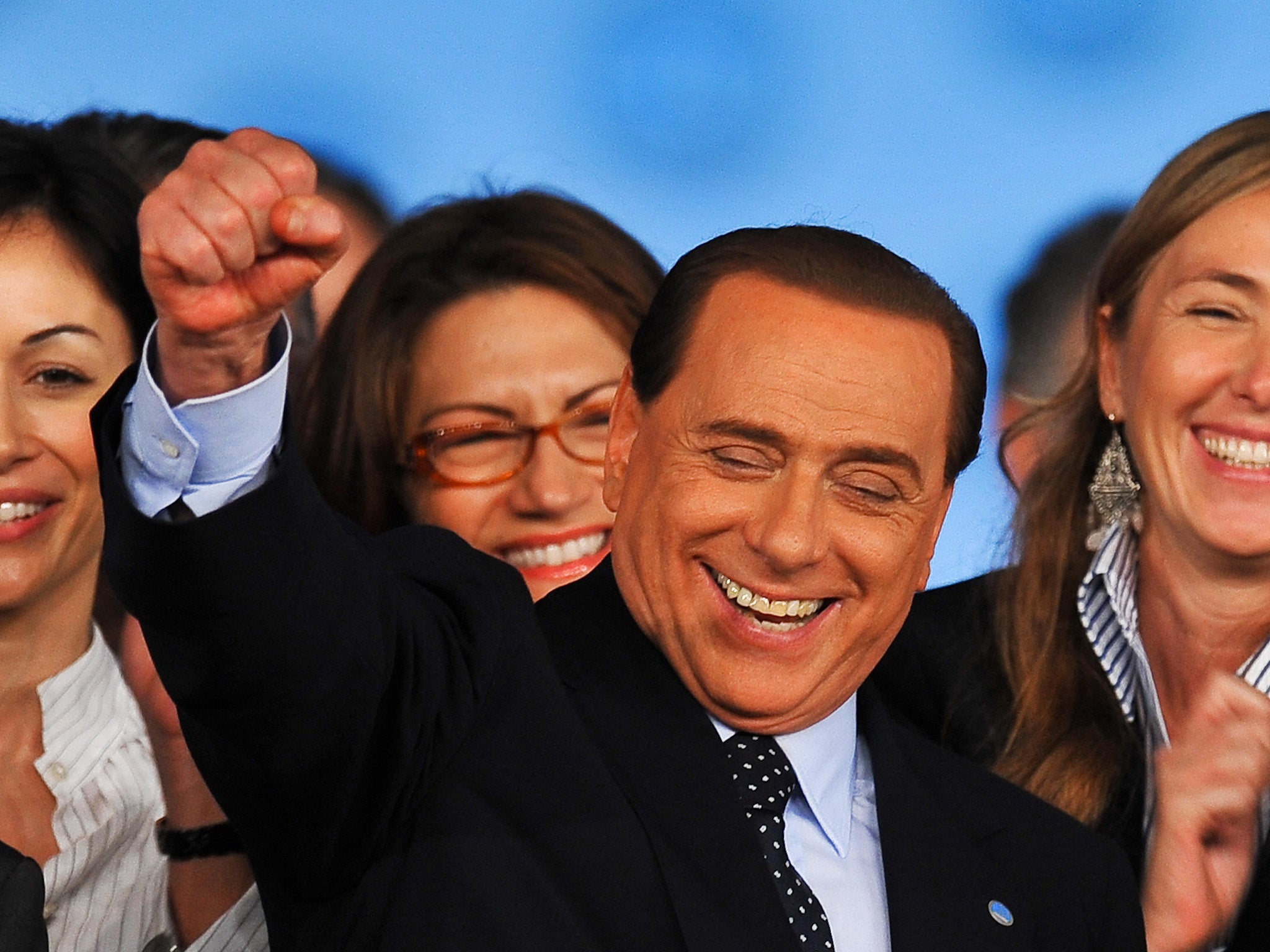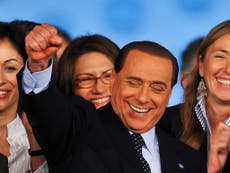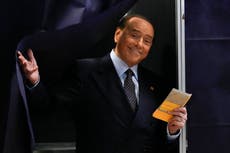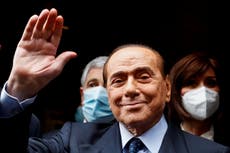Farewell, Berlusconi – you showed Boris and Trump how it’s done
The former Italian PM’s dubious distinction is that he led the way for a corrosive brand of populism that has afflicted the UK and US, writes Sean O’Grady


For British observers at any rate, Silvio Berlusconi held the dubious distinction of being the only person to have been publicly admonished, if indirectly, by Queen Elizabeth II. At the G20 summit in London, we find Her Majesty sandwiched between the then prime minister Gordon Brown and President Lula of Brazil for the usual “family photo”. As the famous video online shows, when it’s done they all get up, and the irrepressible Italian premier starts trying to get the attention of the American president, yelling: “Mr Obama, Mr Obama!” This triggers the Queen to turn round, sigh, and raise her arms in mock frustration, before saying, vaguely in his direction: “What is it? Why does he have to shout?”
Berlusconi’s other dubious distinction is that he served as a kind of prototype for Donald Trump and Boris Johnson, and for the deeply corrosive brand of nationalist populism that has overtaken so many of the Western democracies in recent years – even those, like America and Britain, that fancied themselves immune to being infected by it. Though you can go too far in such tempting analogies, it was a bit like how Mussolini was the first to develop and practice the methods of fascism, which in turn spread across much of Europe and the wider world in the ensuing decades.
Consciously or not, Trump, Johnson, Nigel Farage, Marine Le Pen, the German AfD, Viktor Orban in Hungary, Recep Tayyip Erdogan of Turkey, and many others have followed Berlusconi down a road of brash, shameless populism, sometimes-weird cults of personality, and above all, that sense (however bogus) of being an “outsider”, an “insurgent”, on the side of the people against a corrupt establishment and an effete, useless parliament.
This is, in fact, most clearly the case with the various odd characters who followed Berlusconi on the Italian far right, such as Beppe Grillo, the comedian who founded the Five Star movement, Giuseppe Conte, who succeeded him, Matteo Salvini of the Northern League, and now Giorgia Meloni, head of the Brothers of Italy and the country’s current prime minister.
What Berlusconi did, with the help of Italy’s generous system of proportional representation, was to create a personal political movement, Forza Italia, to break the mould of traditional politics and destroy the old parties of left and right – and he succeeded. Farage did something of the same via Ukip, while Trump and Johnson had to work through established structures, but the effect was the same – realignment, and the introduction of “culture wars” into mainstream public debate.
Berlusconi’s was, in essence, a case of grievous assault on democracy itself, rather than actually murdering it like his infamous fascist forbears – but, like Trump and Johnson in their turn, he certainly left parliamentary democracy in hospital.
Berlusconi was in power for quite lengthy periods, by Italian standards, in the 1990s and 2000s. That was before the refugee crisis became as acute as it did later on, and thus Berlusconi’s brand of rightist authoritarianism lacked the sheer inhumanity of its present iteration. Still, with all the buffoonery and naked opportunism (sometimes literally at those notorious bunga bunga parties), the parallels with his political descendants are discomfiting.
He, too, managed to contort politics and wider issues with the help of friendly news organisations – imagine if Johnson had been in Downing Street while actually owning, say, the Murdoch newspaper titles and websites plus a couple of alt-right “news” channels. The volatile, sexually adventurous private lives these men boasted of vary in detail, but one can’t help but wonder if their collective arrogant disregard for common standards of personal morality isn’t a symptom of a deeper kind of psychological flaw.
Similarly, it is fair to concede that Berlusconi gave Italy a higher-profile presence on the international stage – few could name his grey successors – but usually for the wrong reasons. In the end, his policies failed, and in due course Italy’s financial problems had to be sorted out by an ex-EU figure, Mario Draghi – a former head of the European Central Bank, and as different from Berlusconi as the Pope.
In the end, Berlusconi couldn’t deliver what he promised and, even with a showman’s skill at propaganda and with much of the media on side, he couldn’t hide his failures. That’s the trouble with populist nationalism: it can’t work.



Join our commenting forum
Join thought-provoking conversations, follow other Independent readers and see their replies
0Comments